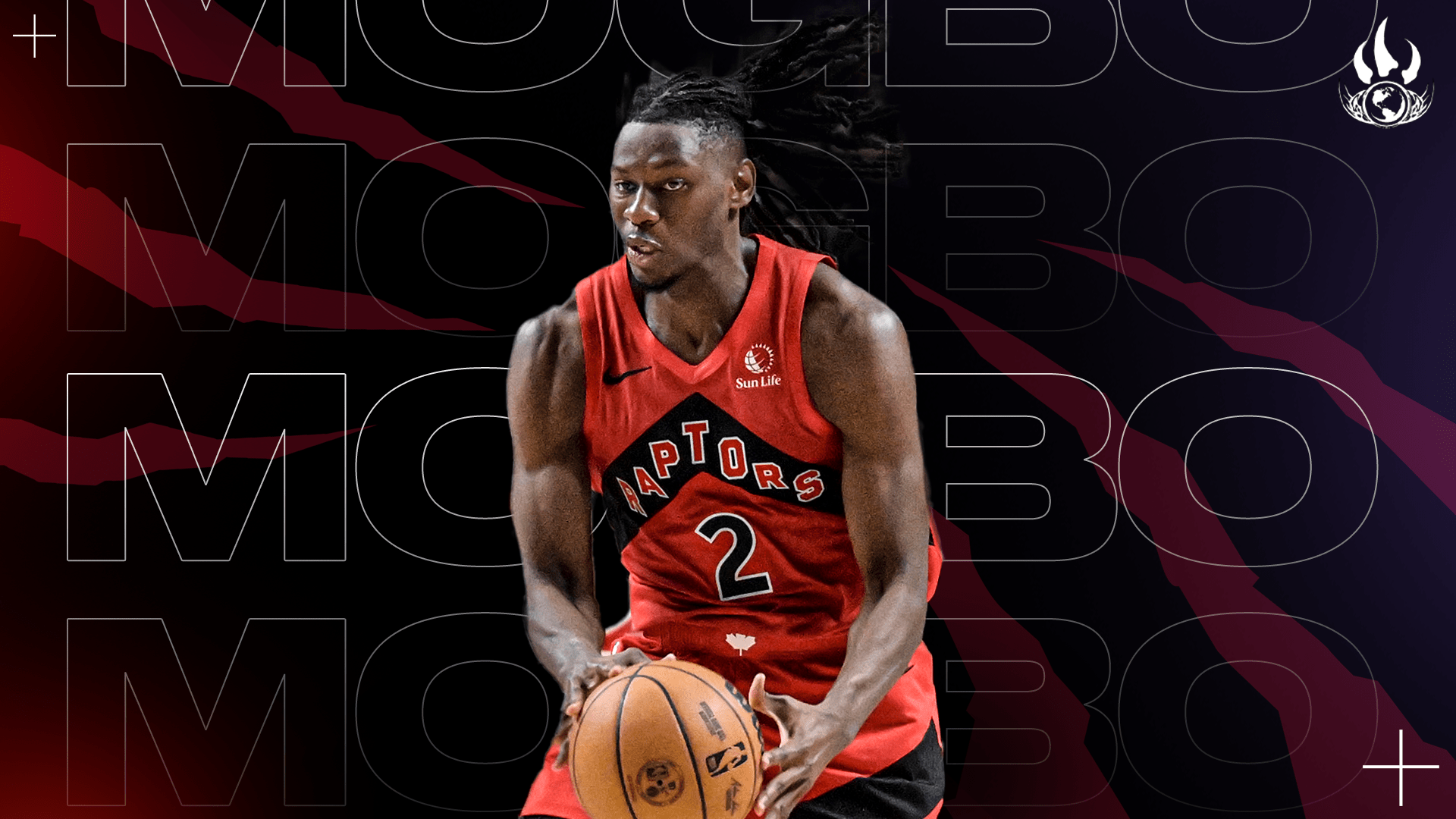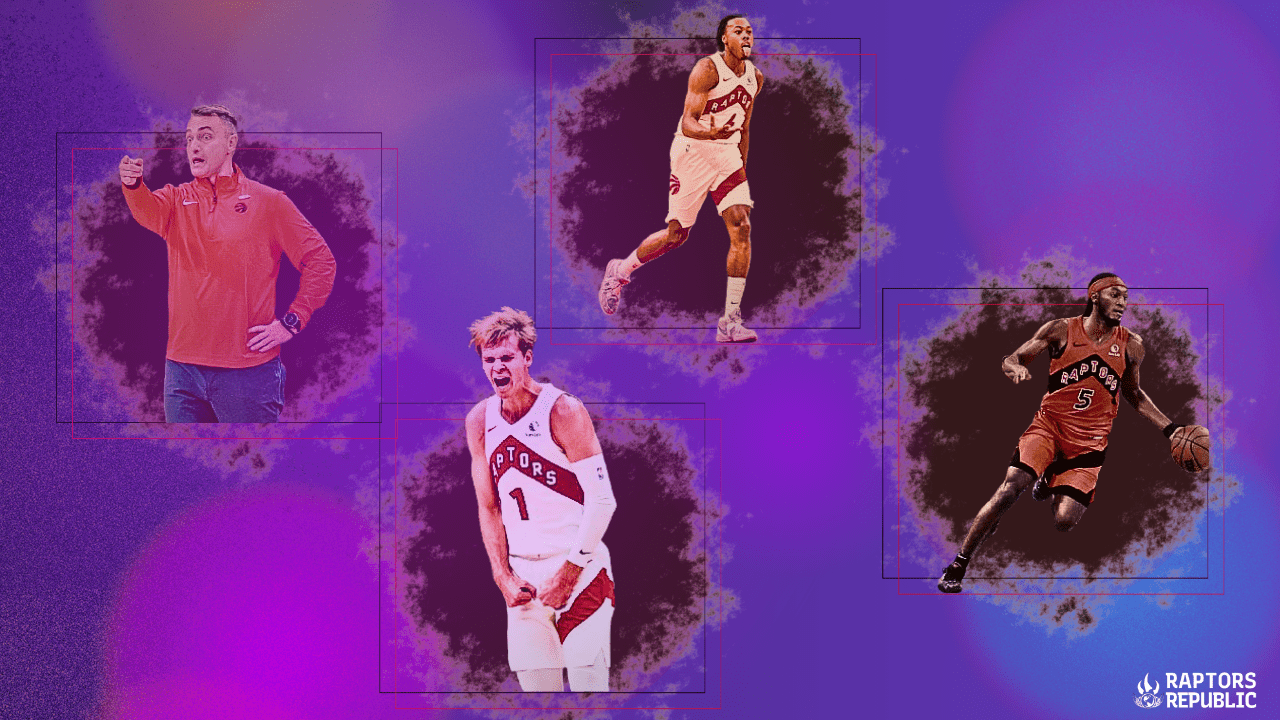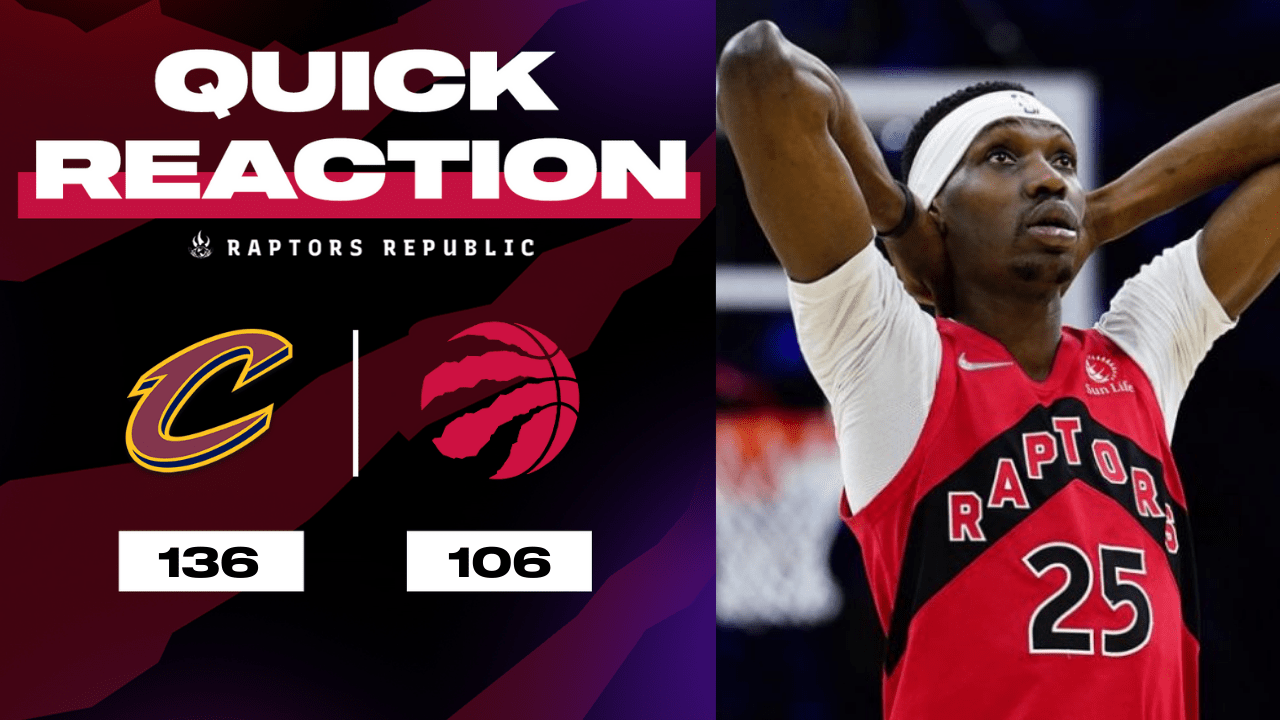For one year, Jonathan Mogbo became accustomed to being the best at nearly everything on the basketball court. There are college stars, and there are college superstars, and Mogbo was the latter. At San Francisco last year, Mogbo had a better 2-point field-goal percentage and a better rebounding rate than Zach Edey. He had a better steal rate than defensive star Devin Carter. A better assist rate than electric guard Reed Sheppard.
He was singular, one of the best players in the nation by every measure.
Then he joined the NBA — a world where virtually everyone is singular. Plenty of the qualities that enabled his success in college no longer were advantages in the league. Furthermore, the team has asked him to be an entirely different player in an entirely different (and non-singular) role. And in many ways, in Summer League and preseason games since, he struggled.
His driving lanes were much narrower, and as a result, he didn’t get his hips or feet past his original defenders. Therefore his passing windows were guarded, as he didn’t shift the defence. Because he is too small to play center in the NBA (for now, full time, caveats, etc.), he’s adapting to new positions and new attacking angles.
“It’s a different change, for sure,” said Mogbo to Raptors Republic of his new role as a wing. But he didn’t want to exaggerate the shock of the new role. “I feel like with my age, I did four years in college, so I’m kind of mature. I know how the process is, I know how the transition will be. I was ready for it. Obviously I got good friends, NBA mentors around me.”
But for the Toronto Raptors, his struggling early is more or less part of the process. Players are rarely good at multiple things, as Darko Rajakovic pointed out last year in reference to Scottie Barnes.
“I always say, if you’re really good at one thing in the NBA, you’ll find your contract, you’ll survive in this league,” Rajakovic said then. “If you’re really good at two things, then you’re a real player. If you’re really good at three things, you’re an All-Star. If you think you’re really good at four things, you’re probably out of the league and playing in Europe.”
Mogbo was really good at four things in college. More than four. That’s not the case in the NBA. And he needs to learn his strengths. Maybe strength singular, at least to start.
“So the first thing is that he’s an amazing athlete and he can do a really good job defensively and to be disruptive and he has a very good feel when to go and block shots,” said Rajakovic. “That’s the first thing how he can affect [the game] as a rookie. When you step on the floor, that’s the first [thing] that you need to do. And this is going to help you to get more minutes and stay on the floor.”
So the one good thing, right off the bat, has to be defence. And Toronto has a need there. Other than Barnes himself, the Raptors don’t have any huge wings — the players out of which the team had formerly built the boat. There’s a lack presently, and if Mogbo’s defence is impactful, there’s room for him in the rotation. When I asked Mogbo about playing lockdown wing defence, his focus was beyond his physicality and strength.
“I feel like my defensive versatility’s comes a long way with my length and athleticism, but also my defensive IQ,” he said. “That’s definitely important at the next level. Just knowing what guys do, watching film. Personnel is a big thing, paying attention to that, just being locked into the game.”
Rajakovic also mentioned how Mogbo needs to find his driving lanes, and that he needs to add a 3-point shot. This is a long-term plan, so don’t expect it all to happen at once. Mogbo didn’t make a 3 in preseason, but he shot them, and the jumper looked fine. He told me his jumper feels good and that he’s been working on it every day. Rajakovic says the entire process is going well in practice. At the very least, he’s communicating well on and off the court. Asking questions, seeking to improve. That’s the start.
On the court, against NBA players, that can look ugly sometimes as he adjusts. He had a team-worst plus-minus among players who appeared in multiple games. He averaged 3.2 points per game while shooting 27.3 per cent from the field in preseason. (The rebounds and assists were there.) But with the ball in his hands, in the halfcourt, he can look lost. He doesn’t always know where he’s supposed to be and what he’s supposed to do with or without the ball. That can lead to funky record skips, such as an open catch in the corner, wanting to drive, and then realizing he’s supposed to shoot.
And defensively, his blocks were down from his halcyon college days, as he has been slower to his spots than he was in college. (Though he was grabbing 2.1 steals per 36 minutes, which is not nothing.) Still, he’s been less able to impact the play as the weakside helper, with NBA players often looming larger than him. Guarding on or off the ball, he has trouble getting through NBA-sized screens, and a quick pin-in can free his mark for an open catch-and-shoot jumper. He has been digging at the nail with his hands, not his feet, letting drives past him. His closeouts have been varied, with him leaving his feet at some points, or coming too slowly at others. NBA defence is hard, and no rookies are consistent there. Still, the inconsistency has been noticeable.
And yet, there have been moments on both ends. He has galloped in transition and flung pristine passes. He knows transition is really where he can shine offensively at this point in his career: “People are not prepared for that. People are thinking, he’s gonna give it to a guard.”
At one point against the Washington Wizards, he screened for Barnes, turned and banged his switch into the post, sealed, caught the ball, and screamed a dunk into the rim. It was an impressive combination of his skills. Against the Boston Celtics, he spent some time defending Jayson Tatum well in isolation and even picked Jaylen Brown clean in the open court.
That steal can’t be had by accident — he sticks with Brown on the snatchback, keeping his feet and momentum clean while he reaches into Brown’s pocket. The slap-the-floor, pull-up-your-shorts, lockdown-my-man-or-die-trying stuff — which doesn’t come for everyone! — has largely been there when it matters. Or at least, ahead of the other stuff.
And the team defence will improve. He is a very fluid mover, so he will navigate screens better over time. He will dig deeper into the lane to prevent drives, and he will recover faster. It may take a few months, or it may take a few seasons, but it’s almost guaranteed to be true. Everyone improves at that with time in the NBA, at least to some extent.
In many ways, and even in the present, he has the cleanest path to minutes of all the rookies. Gradey Dick and (maybe) Bruce Brown fill similar roles as Ja’Kobe Walter. Davion Mitchell will block Jamal Shead’s path to consistent and big minutes, particularly if Mitchell passes as well as he has in preseason. Ulrich Chomche isn’t close to ready. Mogbo is Toronto’s only huge forward defender beyond Barnes. And if Barnes spends his time as the back-line sweeper, someone will have to defend wing scorers in isolation. That team-wide need can push the scales towards minutes for a player who is otherwise shaky in other areas.
Defence has to be Mogbo’s one good thing, his path to another contract and to long-term survival in the league. The rest, the blocks and assists, the efficiency and drives, that will have to come later. And much of Mogbo’s struggles in preseason can be chalked up to him not finding those things yet. And he’s used to finding them, so it looks funky when he’s searching for something to no avail. Like expecting an extra step in the dark and hitting the floor when you don’t expect it. But the defense has shown glimpses.
The Raptors could do more to facilitate him looking good. He could play the role of a big rather than a wing, be asked to do just what he did in college, but in more space and alongside better players. He could put up numbers, if inefficient numbers, on a losing team. But that’s not what the Raptors want for Mogbo, and it not what the Raptors want for … the Raptors. You don’t miss the forest for the trees by prioritizing second-round picks when other players are the foundation. Mogbo has to bend to match this roster. He knows. He’s in the process.
Don’t expect Mogbo to become the singular star he was in college. It’s rare that a top-10 college player becomes a top-10 NBA player. But it’s also rare that they don’t at least get chances in the NBA. Mogbo, this season, has a path to chances. Likely more chances than his up-and-down preseason would dictate. Because context favours him on this Raptors squad.



